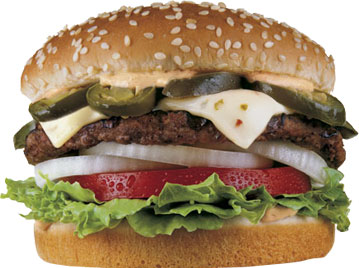Replacing half the animal products we eat with plant-based alternatives could significantly reduce agricultural and land-use greenhouse gas emissions by 2050, according to international modelling.
In a study partially funded by a plant-based meat substitute company, researchers modelled the impact of halving the amount of pork, chicken, beef and milk produced, and replacing it with a range of ingredients which could be used to make substitutes of similar nutritional value.
Their modelling, undertaken in partnership with Impossible Foods and Limestone Analytics, found substituting 50% of pork, beef, chicken, and milk consumption with plant-based products could reduce global agriculture and land-use greenhouse gas emissions by 31% in 2050 compared to 2020.
The modelling paper has been published in Nature Communications.
The findings further suggest net global forest and natural land destruction may almost stop completely.
Despite accounting for less than 20% of the global food energy supply, animal source foods are responsible for most negative impacts on land-use, water use, biodiversity, and greenhouse gas emissions in global food systems.
Substituting the consumption of animal products with plant-based products would help alleviate the environmental impacts of our diets.
Marta Kozicka and colleagues used a global economic land use model to estimate the environmental impacts of our diets when animal dietary products are partially substituted by plant-based products in a future scenario. They focused on the main animal dietary products (pork, beef, chicken, and milk) and how these could be substituted by specific alternative products with similar nutritional value.
They found that beef replacements may provide the greatest benefits. The greatest reductions in biodiversity losses were found to be in Sub-Saharan Africa, China and South-East Asia. Carbon sequestration levels were found to improve the most in Sub-Saharan Africa, Brazil and other South American countries, according to the model.
If 50% of these products were substituted, then climate benefits could double from the restoration of agricultural land to forest, reaching 92% of the previously estimated land sector mitigation potential. Furthermore, future declines in ecosystem integrity by 2050 would be more than halved.
Swapping 50% of our regular animal product consumption with novel alternatives could have a largely positive impact on climate change and natural ecosystems, the authors conclude.
Link to research (DOI): 10.1038/s41467-023-40899-2












